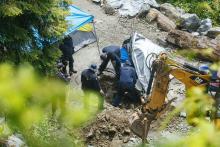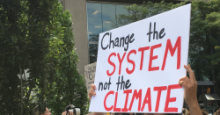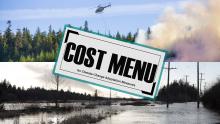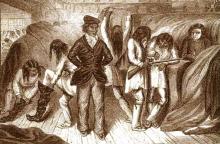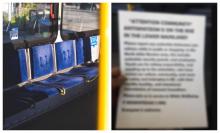A disturbing flyer that claims "anitwhiteism" is on the rise has been seen on Metro Vancouver transit.
An image of a flyer is circulating on social media that asks people to "report antiwhite behaviour" they observe in North Delta and Surrey's Newton area. It also contains a link to a website called "No White Guilt" which features several disturbing videos.
The flyer was reportedly discovered on the side of a TransLink bus.
